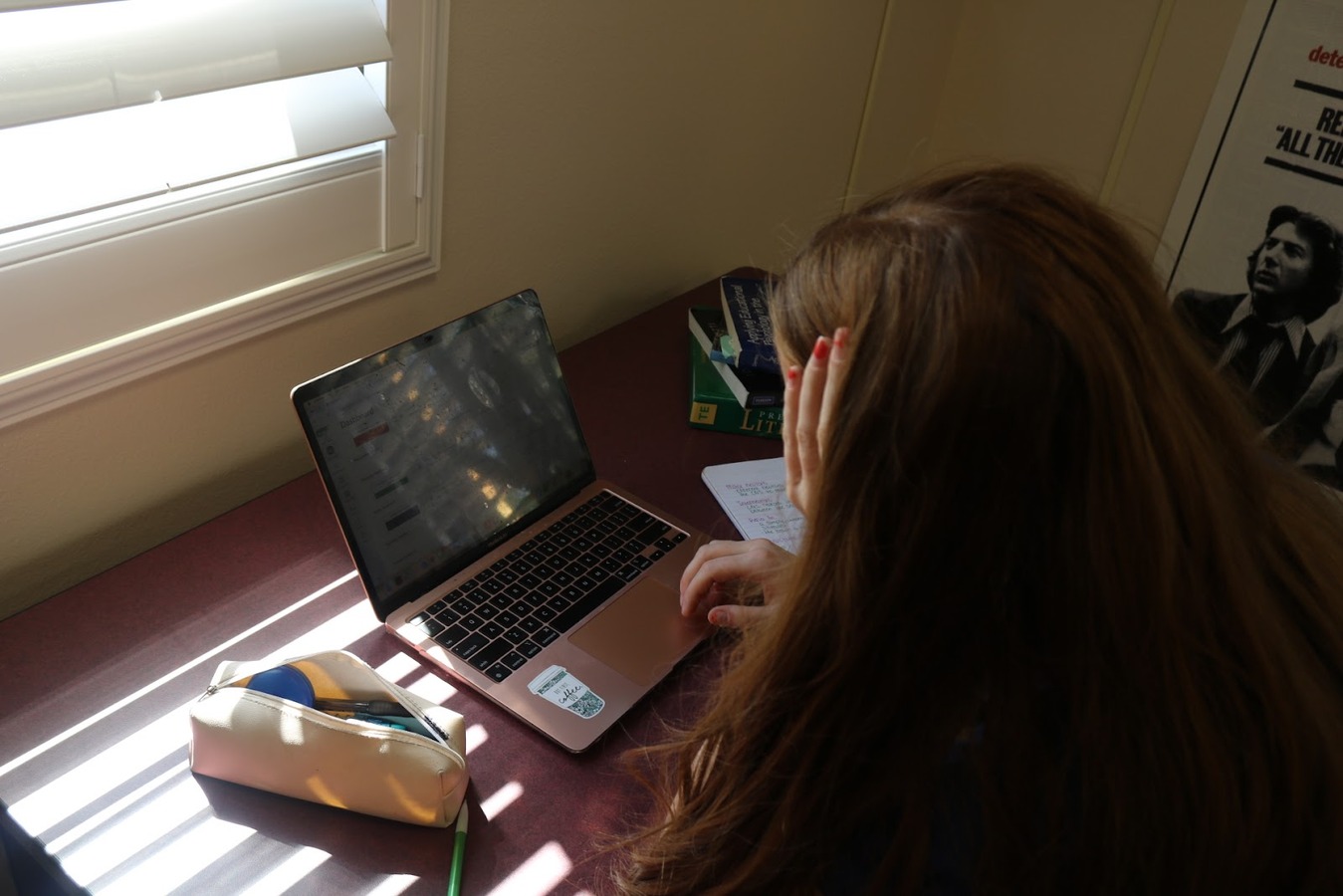“I feel bad and angry and incredibly guilty all the time.”
The Eldest-Daughter Syndrome (EDS) exploded on Tik-Tok in 2023. Kati Morton, licensed marriage and family therapist, broke down the eight signs of this syndrome that has been viewed over 6 million times and has been seen more prominently today.
According to Morton there is an intense feeling of responsibility; an overachieving, Type-A driven quality; a worrying, leading to anxiety; a struggling with people-pleasing behaviors; a difficulty placing and upholding boundaries; a resentment of family and siblings; a struggling with feelings of guilt; and a difficulty with relationships.
Kathleen MacLeod-Ryan, behavioral health therapist, and eldest daughter, says, “It’s a delicate balance between the genetics you’re born with, your environment, and your culture that drives eldest daughters to strive to be overachievers, oftentimes to a fault.”
Mary Kate Fabyanic ‘25 has three younger brothers, ages 15, 12 and 9, with various learning disabilities. She began to feel an obligation to care for them at nine-years-old and explains that she already has a lot on her plate now as a high school senior. Between driving her younger siblings to church, to after school activities and to other events, Fabyanic puts her needs second.
As vice president of mock trial and a great books student, Fabyanic is busy. “I barely have enough time for myself. I spend most of it on my brothers,” she said.
Some may think it’s necessary for the eldest daughter to take on partial responsibility for her siblings; however, they fail to recognize the pressure this puts on her to excel and constantly meet expectations.
Harlow Teitel ‘28 feels pressure from her parents to ensure her brother performs well in school. “I feel like when I fail, he fails; and when he fails, I fail.”
“The best and hardest thing to do is to set boundaries as an eldest daughter,” says MacLeod- Ryan. “Most parents don’t know how much pressure is being put on their eldest child. There’s always a bigger expectation. When you have a younger sibling, it’s expected for the oldest to help out. Then, the oldest sibling becomes a third parent and that’s when the resentment builds.”
As Teitel gets older and is involved in high school sports and extracurriculars she feels the responsibilities start to pile up.
“I play more of a parent role than a sibling role,” says Teitel.
Like many heroes, most of the work eldest daughters do for the family often goes unnoticed. “I wish my parents saw how much work I put in,” says Teitel.
Joey Young ‘28 has four younger siblings, the youngest being four-years-old. She agrees that she is a huge role model for her siblings. “They show it in weird ways, but your siblings want to be like you,” says Young.
Young is a student-athlete who practices swimming for 16 to 18 hours a week and remarks she has to help with homework and sometimes doesn’t understand or remember how to do it. She remembers the responsibilities began to accumulate at 12-years-old when she was trusted to stay home alone more often.
“My mom would tell me that they’re going out to dinner and now I have to put off my homework to watch my four siblings,” says Young.
“The nurturing part of being an eldest daughter also plays into pleasing people. You are nurturing your siblings and caring for them, so you’re pleasing your family and whoever else you want to unconsciously be pleasing,” MacLeod-Ryan says.
However, does this syndrome simply relate to current culture or does it cross over many cultures?
Elizabethe Kinkela ‘28, is a first-generation immigrant from Africa and is being raised by a single mother.
“I feel quite the amount of pressure. I feel as though all that my mother has put on the line depends on my success in order for her to know if she made the right choice or not. She left all she has ever known to come to this completely foreign country for the sake of her daughter doing better in ways she has dreamed for herself but could not make a reality.”
Kinkela recalls that because her mother is extremely busy working to provide, she must stay home and care for her siblings. She makes sure everything is nice and neat, from their hairstyles to their classwork and assignments- as well as to her own.
“I do it all, at least in that sense,” she explains. Now that she’s in high school, she’s become busier than before with new classes and new material, while managing time between clubs and sports, and even a job in the near future.
All in all, being an eldest daughter is being an unsung hero. No one sees that underneath the surface, there’s a lot of pressure, responsibility, and some hurt.



